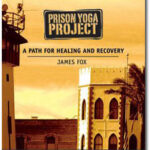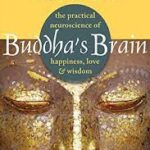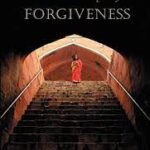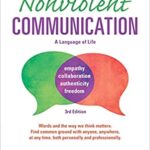Book Recommendations
Mike’s Recommended Reading List
Prison Yoga Project: A Path for Healing and Recovery
by James Fox
James Fox originally wrote Yoga: A Path for Healing and Recovery to provide a resource for released prisoners to continue their practices. It has become something much more than that. The Prison Yoga Project now ships it to prisoners so they can maintain and grow their practices while in prison.
The following are Amazon Associate links that may earn a referral fee, at no cost to you if you make a qualifying purchase.
Buddha’s Brain: The Practical Neuroscience of Happiness, Love, and Wisdom
by Rick Hanson and Daniel J. Siegel
If you change your brain, you can change your life.
Great teachers like the Buddha, Jesus, Moses, Mohammed, and Gandhi were all born with brains built essentially like anyone else’s—and then they changed their brains in ways that changed the world. Science is now revealing how the flow of thoughts actually sculpts the brain, and more and more, we are learning that it’s possible to strengthen positive brain states.
The Twelve Steps of Forgiveness: A Practical Manual for Moving from Fear to Love
by Paul Ferrini
The Twelve Steps of Forgiveness offers us a process for unlearning our ego-based search for perfection and discovering the inner beauty, guidance, and grace that already exist in our lives. It enables us to honor others and establish healthy boundaries that prevent manipulation and co-dependency. Most importantly, it helps us practice forgiveness moment to moment, so that we can discover the place of peace within.
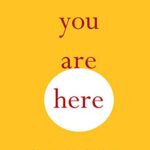
You Are Here: Discovering the Magic of the Present Moment
by Thich Nhat Hanh
In this book Thich Nhat Hanh, the renowned Zen monk, author, and meditation master, distills the essence of Buddhist thought and practice, emphasizing the power of mindfulness to transform our lives. “Mindfulness is not an evasion or an escape,” he explains. “It means being here, present, and totally alive. It is true freedom—and without this freedom, there is no happiness.”
Nonviolent Communication: A Language of Life
by Marshall B. Rosenberg
Do you hunger for skills to improve the quality of your relationships, to deepen your sense of personal empowerment or to simply communicate more effectively? Unfortunately, for centuries our culture has taught us to think and speak in ways that can actually perpetuate conflict, internal pain and even violence. Nonviolent Communication partners practical skills with a powerful consciousness and vocabulary to help you get what you want peacefully.
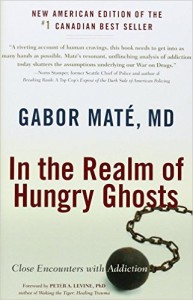
In the Realm of Hungry Ghosts
by Gabor Maté
Based on Gabor Maté’s two decades of experience as a medical doctor and his groundbreaking work with the severely addicted on Vancouver’s skid row, In the Realm of Hungry Ghosts radically reenvisions this much misunderstood field by taking a holistic approach. Dr. Maté presents addiction not as a discrete phenomenon confined to an unfortunate or weak-willed few, but as a continuum that runs throughout (and perhaps underpins) our society.
Meditations
When we practice mindful meditation, we learn to turn off the outside world for a period of time. We can go from a state of dysregulation to regulation. Meditation leads us away from distraction and helps us focus, alleviating anxiety and depression.
Mindfulness means simply, “focused attention”. Practicing mindful meditation is simple and easy, and in just a few short sessions, one can achieve amazing results.
Mindfulness calms the amygdala in our brain, improving our working memory. When we experience anxiety, we don’t have to “do” anything. The practice of Mindfulness will teach us how to navigate through anxiety.
Mindfulness is a way of doing things. It is a way of thinking, and it’s a way of being. We can bring it to everything we do.
Eight minute mindful meditation introduction by Martin Rickler, MA, PhD. Visit Marty’s website for more meditation resources: www.martinrickler.com
Articles
Harvard neuroscientist: Meditation not only reduces stress, here’s how it changes your brain (Washington Post)
Walking Meditation (www.jackkornfield.com)
Why Being Present Is So Difficult (And What You Can Do About It) (www.mindbodygreen.com)
The basic nature of the mind is to dwell in the past or to worry about the future. Our uneasiness about what’s to come is actually our strategy to prepare for the future – our mind’s ingenious way of ensuring that we’re equipped to survive.
The Body Scan Practice (www.mindful.org)
Body scans are a way to get in touch with the body, let go of feelings of needing to get stuff done, and release pent-up emotions. Just like other forms of meditation, the body scan also trains attention.
Meditation’s Antianxiety Effects Visible on Brain Imaging (www.medscape.com)
Individuals with no experience in meditation who participate in mindful meditation training sessions for as little as four days show changes in specific brain mechanisms that correlate with a reduction in anxiety, a new imaging study shows.
Santa Barbara Meditation
Mindfulness Meditation Group Sittings with Radhule Weininger, PhD
Carefully guided Mindfulness meditation and Metta/Loving Kindness meditation along with talks and monthly gatherings for discussion and mingling. Weekly free group meditation sittings at St. Michael’s Church in Isla Vista (7pm-8:15pm), the Museum of Natural History in Santa Barbara, CA (6pm-7pm), and La Casa de Maria in Montecito, CA (6pm-7pm).
La Casa de Maria Program Schedule
La Casa de Maria, located in Montecito, CA, hosts retreats, mindfulness meditation, weekly centering prayers, and yoga.
